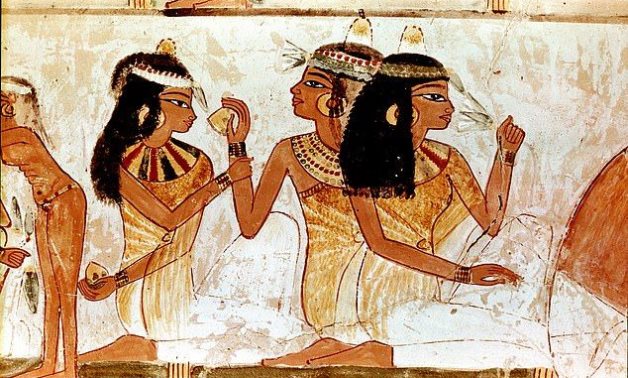
Ancient Egyptians were the first to make essential oils and ointments - Universal Images Group via Getty
CAIRO – 9 May 2022: Ramesses VI faced a challenge when he became king of Egypt in 1145 BC. The new pharaoh's first task was to rid the land of the smell of fish and birds, according to instructions contained in a hymn written by Ramesses VI upon his accession to the throne.
Written accounts indicate that the inhabitants of ancient Egyptian cities experienced a wide range of odors. The ancient Egyptians often inhaled the aromas of cooking meat, incense, trees, and flowers. The hot weather in Egypt increased the demand for scented oils and ointments that covered the body with a pleasant scent.
“Written sources show that the ancient Egyptians lived in a world rich in the sense of smell,” Egyptologist Dora Goldsmith of the Ferry University of Berlin tells Science News, emphasizing that a full understanding of ancient Egyptian culture requires a comprehensive examination of how the pharaohs understood smells.
Some archaeologists inhale scent particles from artifacts found in excavation sites and in museums, while others scan ancient texts for references to perfume recipes. They even created a scent very similar to that supposedly preferred by Cleopatra. In their quest to study and revive the smells of the past, these researchers aim to understand how the ancients experienced and interpreted their world through scents.
A range of biomolecular techniques make it possible to identify molecules from ancient aromatic materials preserved in cookware and other containers, in tartar on human teeth, and even in the remains of mummies.
Other researchers have experimented with looking for molecular scent evidence in previously excavated pottery. Analytical chemist Jacopo La Nasa of the University of Pisa in Italy and his colleagues used a portable version of their mass spectrometer to study 46 bowls, jars, cups, and clumps of organic matter to look for distinct odors in the tomb of an ancient Egyptian foreman named Kha, and his wife Merit.
Kha and his wife Merit are two notable non-royal family members who lived during the 18th Dynasty in Egypt from about 1450 BC to 1400 BC.
According to the Journal of Archaeological Science, scientists revealed that analysis of the remains that were found inside seven open vessels and one block of unidentified organic matter revealed oils, fats, beeswax, possible chemical markers of dried fish and an aromatic resin.
Dora Goldsmith says that oils, fats, and beeswax in the seven open bowls could only be essential ingredients for ancient Egyptian perfumes and ointments.
According to Goldsmith, Egyptian perfumers added to it a range of aromatic ingredients that included myrrh, resin, bark from cedar and pine trees, juniper berries, frankincense, and walnut grass. Heating these recipes produced a strongly scented ointment.
Comments
Leave a Comment